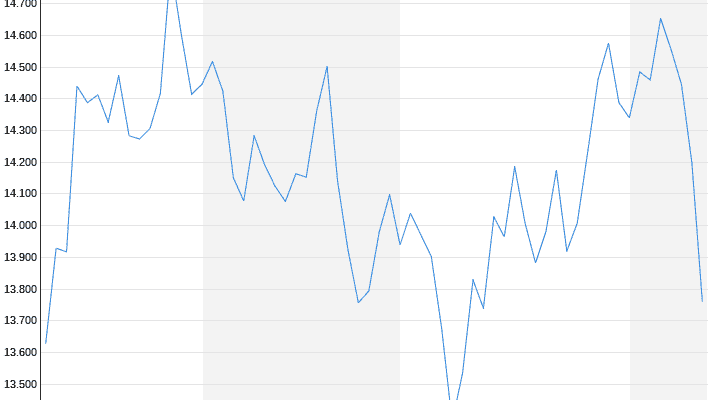Inflation is through the roof
Stock gains are pain and suffering
By Benjamin Feingold
06/11/2022 2:34 p.m
Currency devaluation is currently around eight percent in the euro zone. That’s exactly what stocks actually deliver on average in terms of returns. Sounds like a good balance, but right now an old piece of wisdom has to be used.
Equity gains are compensation for pain and suffering, as Andre Kostolany once described it. First comes the pain, then the money. This is all the more true in times of inflation. Because at first glance, shares are actually the perfect solution for savers to escape the ongoing depreciation. By investing in companies, you invest in real assets and benefit from rising prices. On the other hand, bank deposits lose value when inflation is high.
Annoyingly, however, stock markets are currently on the decline while inflation remains high. “It will not weaken anytime soon. Due to the extensive failure of grain deliveries by Ukraine and Russia, food prices will continue to rise and will probably replace energy prices as price drivers. Second-round effects on wages are also foreseeable,” says Stefan Riss, capital market strategist at Acatis Investment
For stocks to be worthwhile for investors, the return generated must be higher than inflation. An ideal environment for stocks is therefore a low general price increase of two to three percent per year. Depending on the index, investors have been able to achieve a medium-term real return of eight to twelve percent a year in the past.
However, the higher the inflation, the lower the return. This means that investors do not hedge against inflation risks with shares, especially in the short term. But over the longer term, the major stock markets have always rallied and inflation has always returned to the green.
The turnaround in interest rates is here
Skyrocketing prices are often the result of surprising developments. The delivery bottlenecks due to the strict lockdown rules in China and the war in Ukraine are good examples of this. But at some point, oil prices will fall again and supply chains will function smoothly. So anyone who wants to see stock gains currently needs patience and has to endure price losses.
However, one must also take into account the turnaround in interest rates initiated by the US Federal Reserve and the ECB. Higher interest rates mean that equities are becoming less attractive than other forms of investment. And they make financing more expensive for companies, making their earnings forecasts less certain.
In addition, future profits of companies are of less value due to higher interest rates in the present, because the profits are discounted more. This is impressively shown by the losses of tech stocks, which mostly benefit from long-term growth fantasies. Stocks such as Netflix, Delivery Hero, HelloFresh and Zalando have lost value very sharply since the beginning of the year.
Nevertheless, it is worth investing in stocks over the long term. A good basis can currently be laid – for example through quality stocks with dividend payments that cushion inflation.
Value stocks are becoming more popular
“Few companies are immune to high inflation and can pass on rising prices,” said Ricardo Evangelista, senior analyst at ActivTrades. Strong brands, solid balance sheets, a broad customer base worldwide, high product quality, flexibility in purchasing and production as well as economies of scale are key factors that lead to strong pricing power towards customers and suppliers.
Companies that generate high levels of liquid funds and therefore have few problems with rising refinancing costs also have an advantage. “The Pacer US Cash Cows 100 Index has climbed nine percent since the beginning of the year, while the S&P 500 has lost 13 percent,” calculates Jürgen Molnar from broker RoboMarkets. Included in the index are 100 companies that generate the highest free cash flow returns.
These classic substance stocks are considered boring in normal stock market times. But now they are among the favourites, including consumer goods stocks such as Coca-Cola and McDonald’s, oil and commodity giants such as BHP and Exxon, and tobacco companies such as Philip Morris and British American Tobacco. Such companies can also be found in Germany. In the Dax, Deutsche Telekom and RWE have risen sharply since the beginning of the year.
Benjamin Feingold operates the stock exchange portal Feingold Research.
This post is not a recommendation to buy or sell shares or other financial products. No liability is assumed for the correctness of the data.
